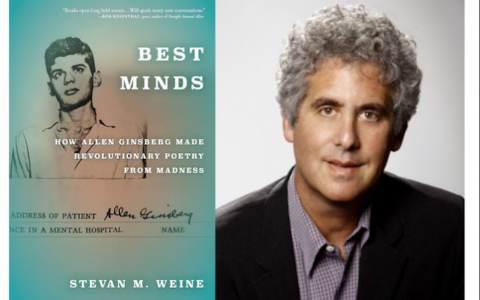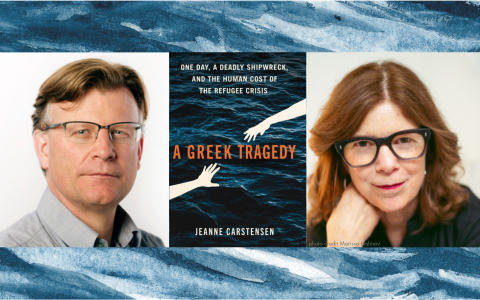
A revelatory look at how poet Allen Ginsberg transformed experiences of mental illness and madness into some of the most powerful and widely read poems of the 20th Century.
 Allen Ginsberg’s 1956 poem “Howl” opens with one of the most resonant phrases in modern poetry: “I saw the best minds of my generation destroyed by madness.” Thirty years later, Ginsberg entrusted a Columbia University medical student with materials not shared with anyone else, including psychiatric records that documented how he and his mother, Naomi Ginsberg, struggled with mental illness.
Allen Ginsberg’s 1956 poem “Howl” opens with one of the most resonant phrases in modern poetry: “I saw the best minds of my generation destroyed by madness.” Thirty years later, Ginsberg entrusted a Columbia University medical student with materials not shared with anyone else, including psychiatric records that documented how he and his mother, Naomi Ginsberg, struggled with mental illness.
In Best Minds, psychiatrist, researcher, and scholar Dr. Stevan M. Weine, M.D., who was that medical student, examines how Allen Ginsberg took his visions and psychiatric hospitalization, his mother’s devastating illness, confinement, and lobotomy, and the social upheavals of the postwar world and imaginatively transformed them. Though madness is often linked with hardship and suffering, Ginsberg’s showed how it could also lead to profound and redemptive aesthetic, spiritual, and social changes. Through his revolutionary poetry and social advocacy, Ginsberg dedicated himself to leading others toward new ways of being human and easing pain. Throughout his celebrated career Ginsberg made us feel as though we knew everything there was to know about him. However, much has been left out about his experiences growing up with a mentally ill mother, his visions, and his psychiatric hospitalization. With a 40-year career studying and addressing trauma, Dr. Weine provides a groundbreaking exploration of the poet and his creative process, especially in relation to madness. This book examines the complex relationships between mental illness, psychiatry, trauma, poetry, and prophecy―using the access Ginsberg generously shared to offer new, lively, and indispensable insights into an American icon. Dr. Weine also provides new understandings of the paternalism, treatment failures, ethical lapses, and limitations of American psychiatry in the 1940s and 1950s.
In light of these new discoveries, the challenges Ginsberg faced appear starker and his achievements, both as a poet and an advocate, even more remarkable.
 Dr. Stevan M. Weine is Professor of Psychiatry at the University of Illinois College of Medicine, where he is also Director of Global Medicine and Director of the Center for Global Health. He is the author of two books, When History is a Nightmare: Lives and Memories of Ethnic Cleansing in Bosnia-Herzegovina and Testimony and Catastrophe: Narrating the Traumas of Political Violence.
Dr. Stevan M. Weine is Professor of Psychiatry at the University of Illinois College of Medicine, where he is also Director of Global Medicine and Director of the Center for Global Health. He is the author of two books, When History is a Nightmare: Lives and Memories of Ethnic Cleansing in Bosnia-Herzegovina and Testimony and Catastrophe: Narrating the Traumas of Political Violence.
Mechanics Institute Members FREE
Public sliding scale, $5 to $10
Meet the Author(s)

Future Meet the Author(s)
May 8 - 6:00 pm
The Book of Awesome Asian Women: Empresses, Warriors, Scientists, and Mavericks
with author Karen Wang Diggs
May 15 - 6:00 pm
No Straight Road Takes You There: Essays for Uneven Terrain
with Rebecca Solnit and Lauren Markham





